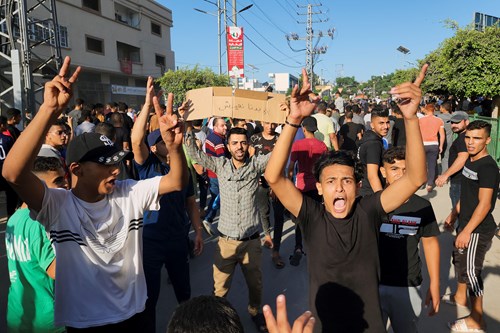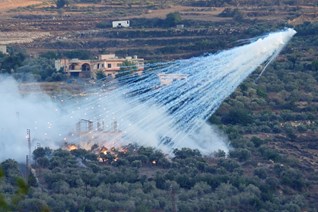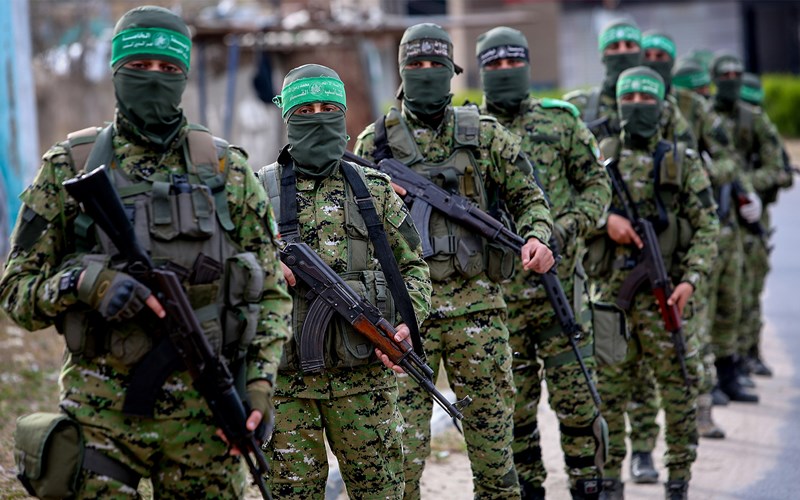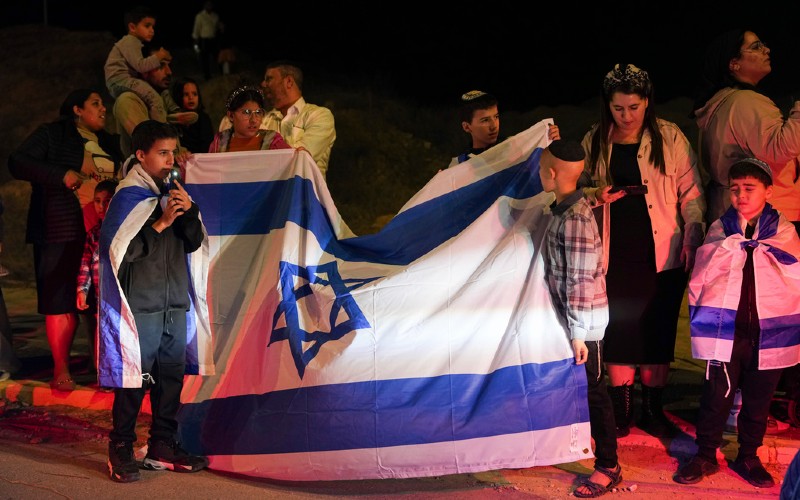Amir Tsarfati, the founder and CEO of Behold Israel, a nonprofit group that covers Israel from a biblical worldview, said on Washington Watch Monday that America's open southern border and lax approach to national security make an attack by Hamas a matter of when not if.
"They don't even hide it. Those terrorists, they say, 'Saturday people are first, the Sunday people are next,'" Tsarfati told show host Tony Perkins. "America has thousands of sleeping cells all across the country. Your southern border is so open I can't even imagine how many Hezbollah and Hamas cells are in your country right now. They're testing you."
Europe is also at risk, Tsarfati said.
Two ingredients: Patience and division
According to the prophecy teacher, the Hamas attack that killed more than 1,400 Israelis on Oct. 7 was the picture of terrorist patience and came at a time that the terrorists judged Israel to be weakened by division.
Thousands demonstrated in Israel this spring and summer over Prime Minister Benjamin Netanyahu's efforts to limit Supreme Court oversight of the government. Trade unions shut down large parts of the economy in March. And in July, protesters blocked access to Ben-Gurion International Airport and set up tents at busy intersections in major cities.

As Tsarfati explained, Hamas felt the time was right for its purposes and launched the attack from its headquarters in Gaza.
"They waited and waited and waited … then deceived us and deceived the whole area into think they were deterred – and then boom, one day they strike," said Tsarfati, a Messianic Jew. "They thought that Israel was too weak to respond, the society too divided; [that] they had lost their patriotism, their sense of giving your life to this country."
Hamas responds to 'smell' of weakness
Tsarfati argued that similarities exist between Israel's summer of discontent and the state of the U.S. as tension flares over social issues like abortion and LGBTQ rights plus economic concerns with rampant inflation.
"This is exactly what the whole world is experiencing, and America leads that. Then [when terrorists] smell weakness, they strike," said Tsarfati, who calls on the U.S. to change its elected leaders. "I hope that Americans are going to wake up to understand that you are in a crisis right now, and you have to stand up change this policy. You know what you need to do in November [2024]."
Israel responded to the Hamas attacks with a bombing campaign then a ground invasion of Gaza, but has now agreed to a cease-fire in exchange for the release of citizens kidnapped on Oct. 7. The cease-fire was extended by two days on Monday and is nearing a week in duration.
The cessation of attacks was a bad move, says Tsarfati, a former major in the Israel Defense Force.
 "Right now, the Israeli troops in Gaza are seeing, watching, looking at Hamas terrorists regrouping and reorganizing. Right now, we see it, but we cannot shoot them. We see that what they're planning for us once this pause is over, is far greater than what we had with them before."
"Right now, the Israeli troops in Gaza are seeing, watching, looking at Hamas terrorists regrouping and reorganizing. Right now, we see it, but we cannot shoot them. We see that what they're planning for us once this pause is over, is far greater than what we had with them before."
He continued: "This was a terrible mistake to stop right now. We should have had a pause, but it should have been two weeks from now when northern Gaza is completely leveled, all the tanks are facing the south. Then let's talk business."
Result: Unity where there was division
Tsarfati said the Oct. 7 attacks were a "one-day holocaust" and "crimes against humanity that were performed by bloodthirsty people who have no regard for human life and have no intention to have any peace with us at all."
But those attacks, according to Tsarfati, have served to unite the previously divided country and strengthen the resolve of Israelis.
"Israel, for the longest time, tried to appease them by giving them jobs within Israel by allowing money to flow in. But this monster rose one morning and tried to devour us," he said.
While nations worldwide – including the United States – have called for a pause or a complete end of the war, Israelis remain strong in their belief that Hamas has to be destroyed, Tsarfati said.
 Sandwiched between enemies
Sandwiched between enemies
With Hamas-led Gaza to the south and almost three million Palestinians in the West Bank to the north, Israel is "sandwiched" between its enemies.
"We're facing right now a battle between two things. We have the largest terror base [Gaza] on planet Earth, and in the north we have the largest or the strongest terror organization [Hezbollah] on planet Earth. That's what Israelis understand right now. We are facing something that is far above and beyond what we ever expected – [and it] is not something we are willing to live next to," Tsarfati said.
In addition to unifying the country, the attacks have caused Jews in mass number to seek God – not Jesus, Tsarfati clarified, but God.
"There is an exodus from hedonism, materialism and secularism toward believing in God. It's a min-revival. Christians must know that they have to stand for Israel, to pray for them and to help them. God is expecting that from them," he said, adding that Christians need to pray specifically for Jews to turn to Jesus.
"We need to pray that for many Jewish people the veil will be lifted as they make their way to their God."







